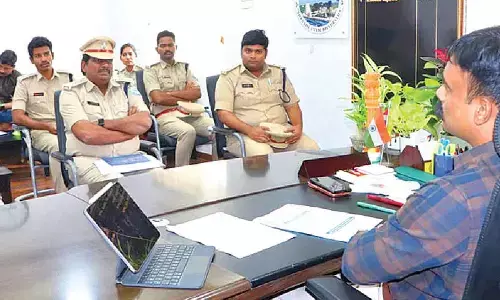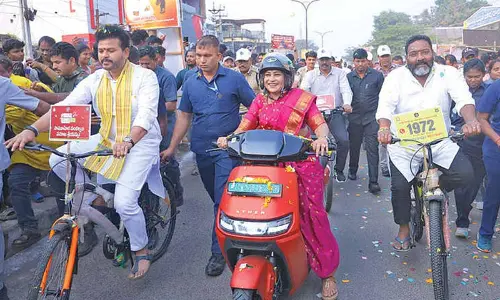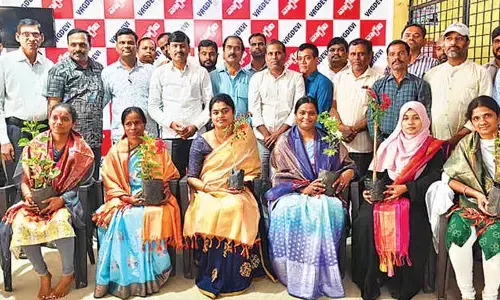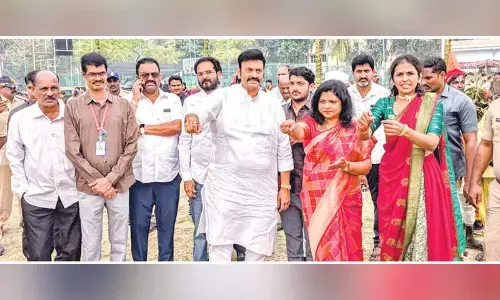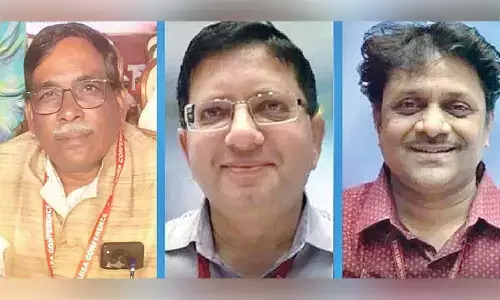Aerial transport of human corneas via drones may revolutionise eye care: ICMR
Share :
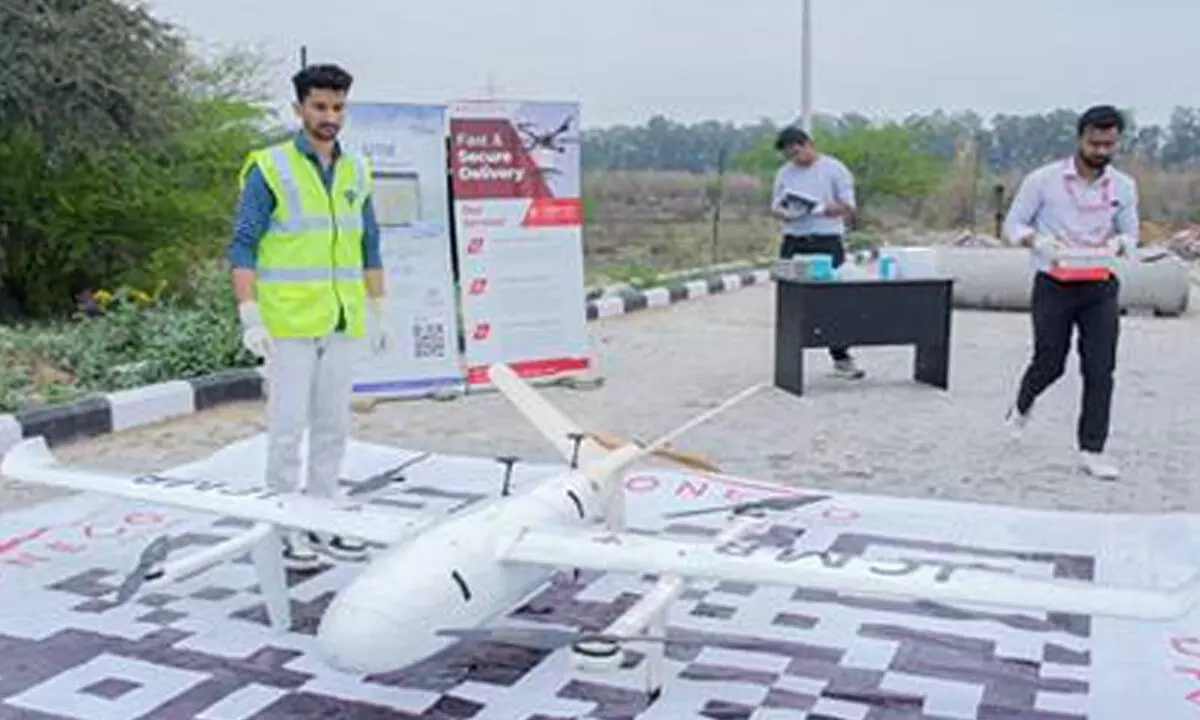
The Indian Council of Medical Research (ICMR) has in a pilot study demonstrated the potential of aerial transport of human corneas via drones to revolutionise eye care in the country, especially in rural areas, said the Ministry of Health and Family Welfare on Tuesday.
New Delhi: The Indian Council of Medical Research (ICMR) has in a pilot study demonstrated the potential of aerial transport of human corneas via drones to revolutionise eye care in the country, especially in rural areas, said the Ministry of Health and Family Welfare on Tuesday.
The pioneering study assessed the potential of using drones to transport sensitive ophthalmic biomaterials such as human corneas and amniotic membrane grafts from peripheral collection centres to tertiary hospitals for transplantation procedures, in Sonipat and Jhajjar, Haryana.
“The drone successfully transported corneal tissue from Dr. Shroff’s Charity Eye Hospital (Sonipat centre) to the National Cancer Institute (NCI), AIIMS Jhajjar, and subsequently to AIIMS New Delhi,” the Ministry said.
“The distance between the two cities was covered in around 40 minutes via drones which usually takes around 2-2.5 hours to cover via road. The drone maintained optimal conditions for specimen integrity and upon arrival, the cornea was evaluated, leading to a successful transplant surgery,” it added.
The pilot carried out as part of the ICMR’s i-DRONE initiative -- originally conceived during the Covid-19 pandemic to deliver vaccines to remote regions -- was launched in collaboration with AIIMS New Delhi and Dr. Shroff’s Charity Eye Hospital and with the support from the Ministry of Civil Aviation.
“This cornea transport study marks another step forward -- enhancing patient access, ensuring timely transplants, and reducing pressure on overburdened tertiary hospitals,” said Dr. Rajiv Bahl, Secretary, the Department of Health Research (DHR) and Director General, ICMR.
"This initiative aligns perfectly with the Prime Minister's vision of a self-reliant India powered by innovation. Drone-based healthcare logistics are the future, and India is taking the lead by applying this to areas where it matters most -- saving lives and restoring sight," he added.
In the past, the i-DRONE initiative has demonstrated the successful use of drones to deliver essential medical supplies in states such as North East India (Covid-19 and UIP vaccines, medications, and surgical), Himachal Pradesh (medications and samples in high altitude and sub-zero temperatures), Karnataka (intraoperative oncosurgical samples), Telangana (TB sputum samples) and the NCR (blood bags and its components).
“This collaboration between health and aviation sectors is an inspiring example of tech-enabled social impact. Drones offer a scalable solution for timely medical delivery in geographically challenging areas. As India strengthens its drone ecosystem, such studies are critical to building resilient and responsive healthcare infrastructure,” said Piyush Srivastava, Additional Secretary and Senior Economic Advisor, Ministry of Civil Aviation.
Through this study, researchers aim to document operational workflows, identify technical bottlenecks, and generate evidence to support the integration of drone logistics in routine medical practice -- especially for time-sensitive and temperature-sensitive biological materials like human corneas.
The findings will help shape future protocols, policies, and best practices for aerial transport in healthcare.
“Corneal blindness affects millions in India, and timely availability of donor tissue is often a limiting factor. This drone-based transport model could be a transformative step toward ensuring equitable access to vision-restoring surgeries, especially in underserved areas,” said Prof. (Dr.) M Srinivas, Director, AIIMS, New Delhi.


